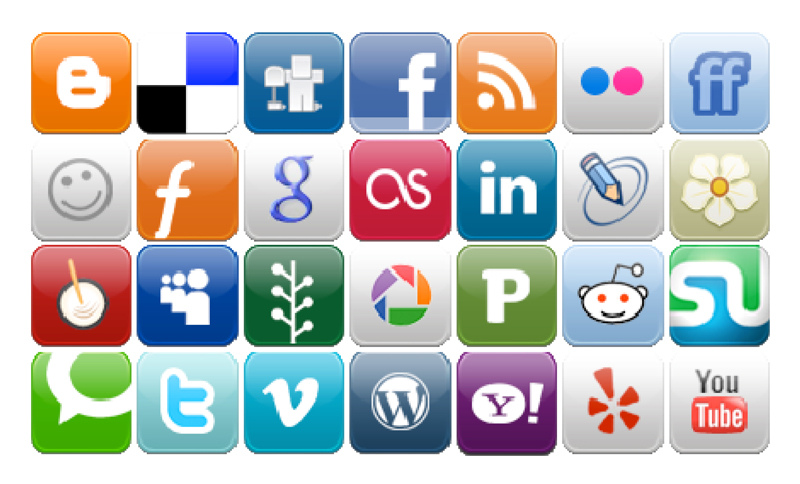Almost anyone in marketing will tell you it’s critical to make use of Facebook and Twitter — and maybe LinkedIn and MySpace, too. There are 200 million Facebook users and 20 million on Twitter — so the numbers are just too big to ignore. That’s especially true if you’re in the media business, like NewWest.net, but it applies to most places. To get your message out, you have to find the people.
Yet the nature of these networks poses huge challenges for marketing. Facebook and Twitter were designed for socializing, not selling, and those activities don’t tend to gel.
On Facebook, you can now have a company (or “organization”) page, which has different characteristics than a regular personal page. Instead of becoming your “friend,” people join as a “fan” of your company, and you can’t access the same set of personal info.
This makes sense, but it also underscores an inherent disconnect. Most people do not think of themselves as “fans” of particular businesses, even businesses they like. (Fan after all is short for fanatic, and it’s a pretty rare firm that inspires fanaticism.) So it’s not that easy to accumulate fans.
Some places get around this by using a personal page as a company page, but Facebook is cracking down on this practice. If you’re doing it, be careful, as you could one day find your account (and all your hard-won friends) deleted.
I suggest instead that you also encourage employees to promote the company via their personal Facebook pages — if they are willing. But watch out for two huge pitfalls. If employees are using their personal pages for business promotion and networking, it’s important that they present themselves professionally and don’t use the page in a way that could hurt the company.
Also watch out for the often-strange co-mingling of business and personal that’s now the norm on Facebook (for better and for worse). If you’re a Facebook regular, you’ll have those annoying friends who overwhelm your feed with “advertisements” for their business, cause, or political candidate.
And you’ve probably confronted the potentially awkward situation of someone “friending” you for business reasons. You might not want that contact to see your “relationship status” or to glean other insights that are integral to the Facebook experience. So I’d recommend that you decide on the main purpose of your individual Facebook account — business or pleasure — and manage it accordingly.
Many of the same hazards apply to Twitter (though Twitter makes no distinction between business and personal accounts, at least for now). A good way to get someone to un-follow you on Twitter is to use it as an advertising platform. But for NewWest.net at least, people follow our feed because they want our tweets. For a while we had an automated system for sending all our headlines out on our Twitter feed, but we decided that was too much. And too impersonal.
Making good use of social networks requires you to act human and to stay sensitive to the evolving ethos of the community. And that requires time and attention—two commodities that are always in short supply at small companies.
Investing in these platforms also carries some risk, as success could prove fleeting. MySpace now appears to be going the way of Friendster. Twitter’s mind-boggling growth slowed significantly in May. Google (GOOG) is preparing a new social-networking initiative that some people think could beat Facebook.
Yet even if Twitter and Facebook take the likely track of turning into tool sets to be used across the Web rather than destinations, you’ll be ahead of the game if you get involved now.
If you’re looking for a silver bullet on how to deal with all this, forget it. I don’t think there’s any systematic way to determine how much time you should devote to a specific platform. As with so many marketing initiatives, returns can be hard to measure. Plus there’s a leap of faith as to what you think will drive business in the long run.
But social networking should enter into your marketing mix at some level. If you haven’t done so already, I’d suggest a companywide brainstorming session about how best to use them — and get everyone in on the conversation. It’s probable that junior-level employees and interns know a lot more about how these communities work than senior management.
Then come up with a budget — not a money budget (there’s no way to advertise on Twitter anyway, and I wouldn’t recommend Facebook ads) — but a time budget. Updating the Facebook page or sending out tweets can be shared among a few people. And you can decide what it’s worth in the context of your overall marketing spend.
At NewWest.net we can determine effectiveness partly by how much traffic is produced. The better defined your marketing goals, the easier it will be to tell whether social-networking activity is making a dent. It’s not going to change your world overnight, but in the era of media fragmentation, every little bit helps.

More PR Insights
Best PR Tactics for Consumer Technologies
Build a PR Plan For Haircare Brands
Here’s Why Paid Memberships are a Strategic PR Move